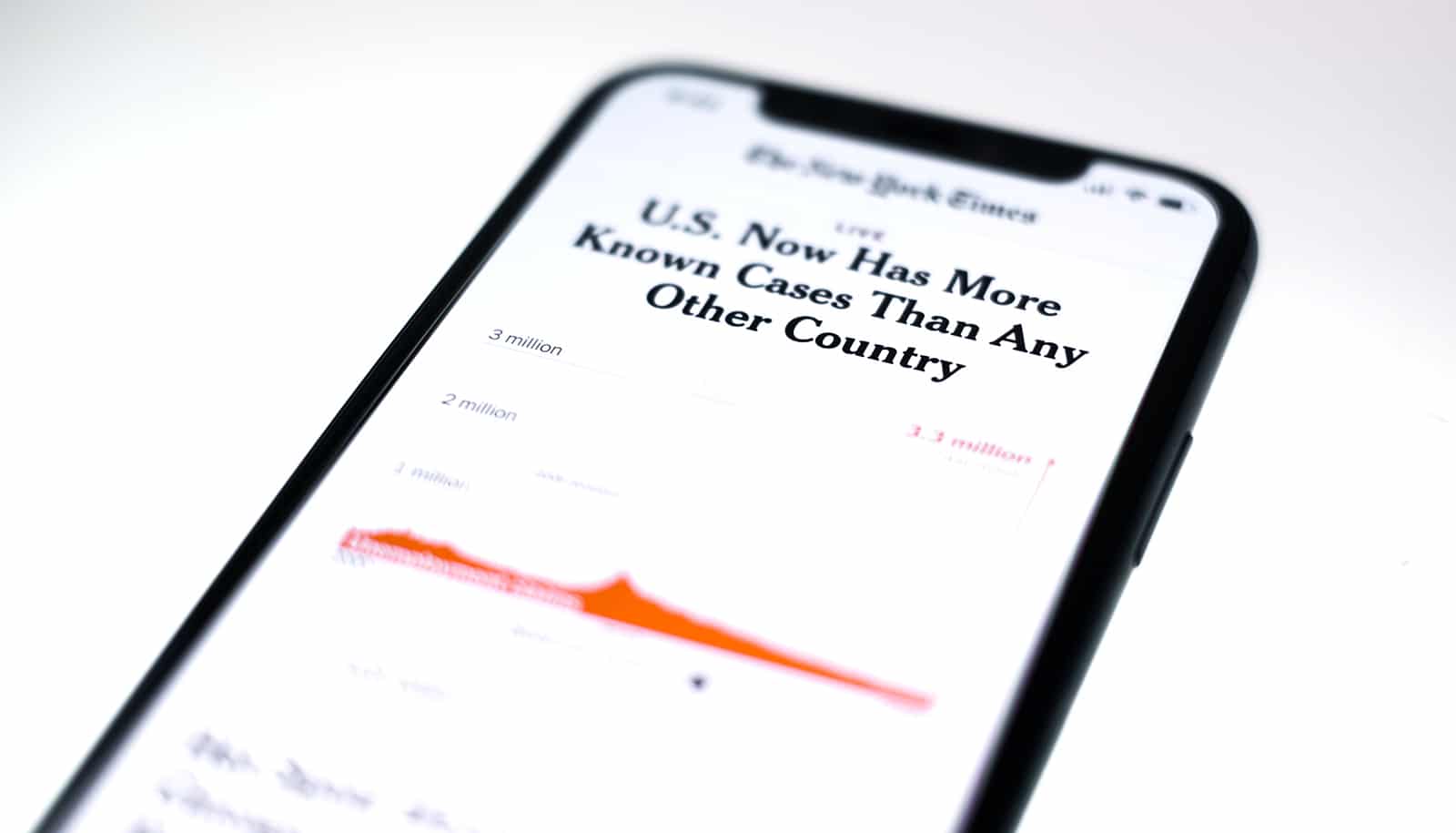Repeated media exposure during a trauma like the COVID-19 pandemic can take a toll, a new study shows.
While government officials and news organizations work to communicate critical risk assessments and recommendations to the public during the coronavirus crisis, researchers say a related threat may emerge, psychological distress.
“It’s a public health paradox that has been identified during and in the aftermath of other collective stressors, such as the 2014 Ebola outbreak,” says Roxane Cohen Silver, professor of psychological science at the University of California, Irvine.
Silver and colleagues describe how media exposure during a shared trauma can amplify negative public health consequences in a paper in Health Psychology.
Earlier longitudinal studies the team conducted after the 9/11 attacks, the Boston Marathon bombings, and the 2014 Ebola epidemic in West Africa showed that repeated high levels of media consumption and graphic content led to heightened anxiety during and in the immediate aftermath of threatening events.
This elevated emotional response associated with adverse physical and mental health outcomes, including cardiovascular disorders, post-traumatic stress, and fear of the future.
Beyond these physical and psychological effects, an influx of concerned patients and critical shortages of resources, such as face masks and respirators that may not get to those most at risk can overburden health care facilities.
“There’s a relationship between stress responses and physical health outcomes that accumulates over time,” says Dana Rose Garfin, assistant adjunct professor in the School of Nursing.
“Those people with the greatest concerns continue to seek out more media coverage, which may create a cycle of distress. It’s imperative for the public to avoid speculative stories and limit repetitious exposure to stories that offer little new information. News organizations must convey relevant knowledge without sensationalism or disturbing images.”
In the paper, the researchers also recommend that public health officials strategically use social media, such as hashtags, to provide ongoing updates. In addition, they advise residents to connect with and follow the websites of government and community agencies and service providers for the most geographically specific guidance.
“Many questions about effectively keeping the public informed during a collective crisis, particularly with regard to social media, need further study,” says E. Alison Holman, associate professor in the School of Nursing.
“We hope that during the current coronavirus outbreak, health scientists are beginning to design and construct such research to gain insight into constructive techniques that can be used by health agencies now and in the future.”
Source: UC Irvine



